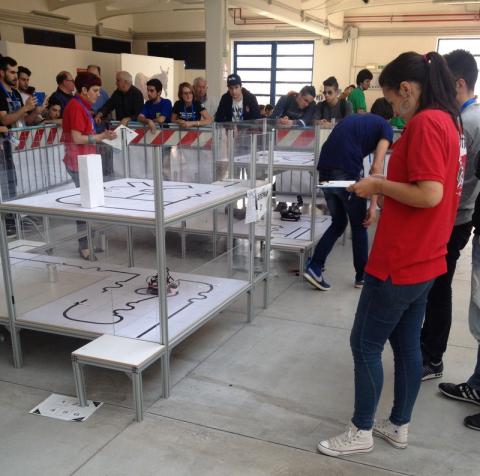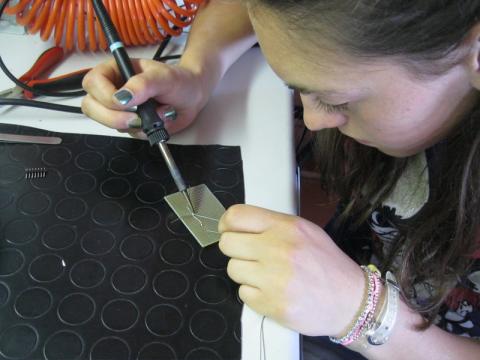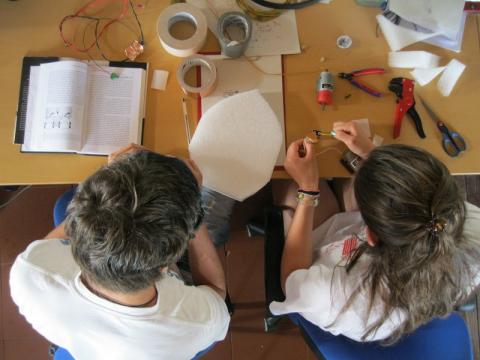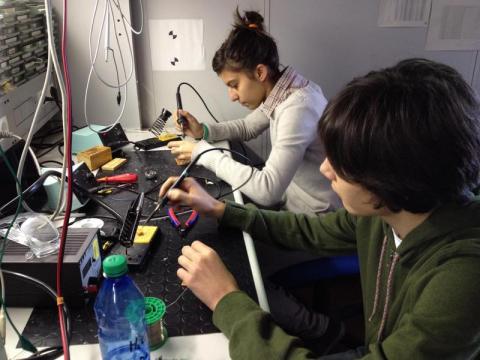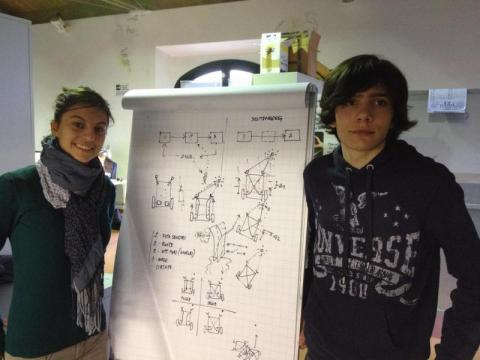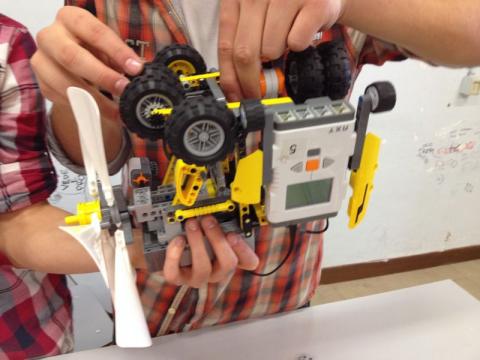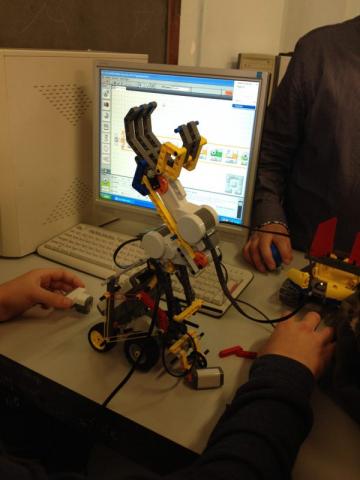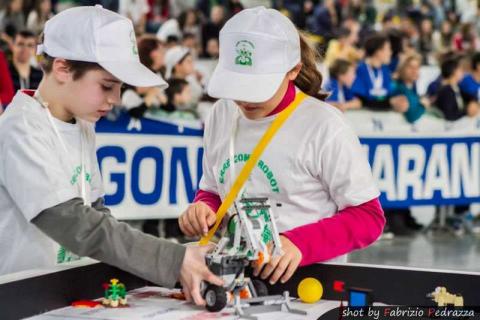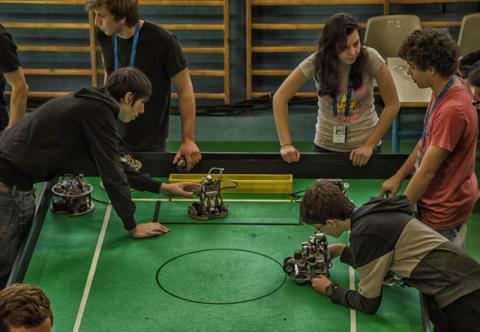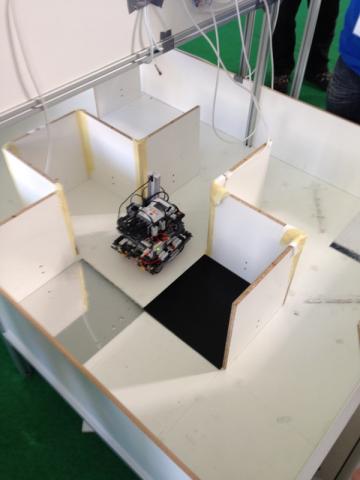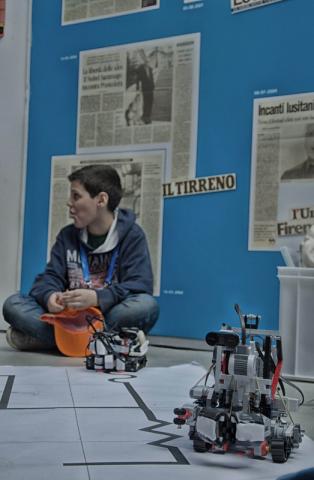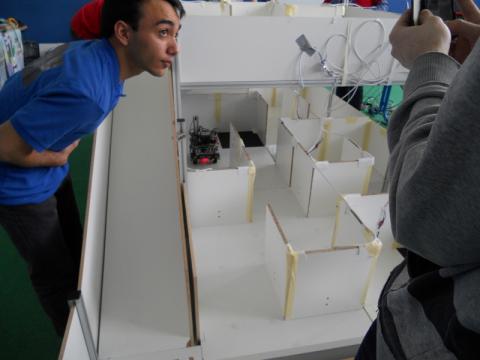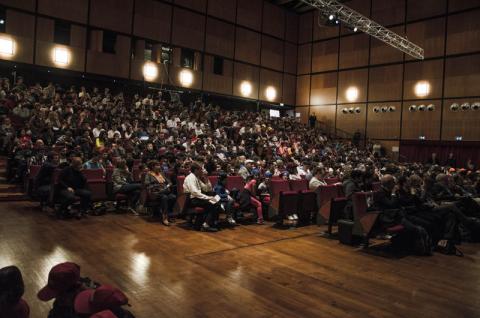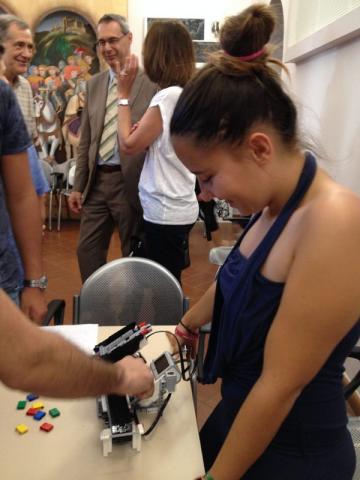Educational Robotics
Educational Robotics is an integrated system using robotics and technology as a method to increase the quality of scientific and technical education in Public School. Robotics may open up new frontiers in education: it increases involvement, develops problem-solving skills, promotes an interdisciplinary approach and supports the development of teamwork. The area of Educational Robotics stems from the intent of The BioRobotics Institute to participate in the scientific and technological education of the new generations, starting from the school age.
Educational robotics activities involve two main areas: Scientific Research and Training.
1. Scientific Research
This research focuses on developing teaching methods and on assessing of their effects on pupils’ learning. The underlying hypothesis is that educational robotics is suitable in progressively improving abilities in planning and controlling complex tasks in early childhood, fostering executive functions development.
This research is currently funded by Fondazione TIM within the project e-rob, coordinated by Fondazione Stella Maris (Pisa), with the following objectives:
- disseminate the educational robotics program through e-learning platform;
- evaluate the effects of teaching robotics on higher cognitive functions in pupils;
- adapt robotic systems to pupils with special educational needs.
2. Training
In 2010 The BioRobotics Institute, in collaboration with the network of primary and secondary schools in Valdera (Tuscany), developed the Territorial Workshop on Robotics. This gathered the public education stakeholders, in order to investigate the viability of introducing robotics in the public education programs.
These activities paved the way for the Regional Network of Educational Robotics active since 2015 and supported by the Ufficio Scolastico Regionale (the Tuscany Region School Office) and Tuscany Region. The network aims to coordinate, promote and introducing Educational Robotics activities in schools in the Tuscany Region. So far two training courses for teachers of primary and secondary schools have been organized. The first edition (a.s. 2015-2016) involved 357 teachers from 144 schools (about 30% of the main Tuscan Institutes) and an experimental study involving 34 classes for a total of 900 students. The second edition (a.s. 2016-2017) involved 192 schools (39% of the Tuscan Institutes) and 628 teachers.
The Regional Network of Educational Robotics agreement ended in 2018.

